MercoPress. South Atlantic News Agency
Brazil
-
Tuesday, July 3rd 2012 - 00:55 UTC
Brazil and Argentina to benefit most from Venezuela’s Mercosur incorporation
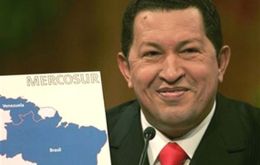
The formal incorporation of Venezuela to Mercosur next July will benefit mainly Brazil and Argentina since they could considerably increase their exports to the oil-rich country at the expense of the local production sector weakened by the economic policies from the administration of President Hugo Chavez, according to analysts.
-
Monday, July 2nd 2012 - 23:42 UTC
Uruguay says it was Brazil that forced the incorporation to Mercosur of Venezuela
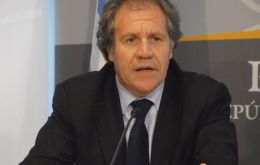
The Uruguayan government revealed on Monday its disagreement with the way Venezuela’s incorporation to Mercosur was decided last Friday at the summit held in Mendoza, Argentina, and said “it was not the last word” since the process must be reviewed from a juridical point of view.
-
Monday, July 2nd 2012 - 05:53 UTC
Rio do Janeiro and its spectacular landscape declared world heritage site

Rio do Janeiro's iconic landscape, marked by soaring granite facades that drop into the ocean and white-sand beaches that go on for miles, is now an official world heritage site.
-
Monday, July 2nd 2012 - 05:38 UTC
Brazil extends cut breaks on home appliances to help boost consumption

Brazilian government extended domestic tax breaks on home appliances and furniture, emphasizing efforts to help ailing Brazilian industries.
-
Monday, July 2nd 2012 - 05:32 UTC
Catholic Church rapidly loosing ground to evangelists in Brazil

Less than two-thirds of Brazilians identify as Catholics, marking a record decline in what is considered to be the world's largest Catholic country, new figures showed Friday.
-
Monday, July 2nd 2012 - 05:28 UTC
Brazil’s Vale gets green light for largest ever iron ore mining project

The world's number two mining company, Brazil’s Vale Doce said it received an environmental license to build its biggest-ever iron ore mine, an Amazon region project that holds about one trillion dollars of reserves at current prices.
-
Monday, July 2nd 2012 - 01:00 UTC
“Argentina will be responsible for the end of Mercosur” claims top Brazilian businessman
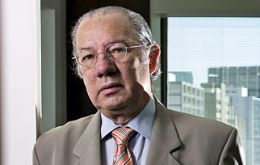
Brazilian businessman Rubens Barbosa, head of the foreign trade council of the Sao Paolo Federation of businessmen said on Sunday that in the last six months, the Argentine presidency of the bloc implemented measures that practically killed the Mercosur.
“Argentina will be responsible for the end of Mercosur,” he predicted. -
Monday, July 2nd 2012 - 00:23 UTC
Former Mercosur top official blasts lack of political support and coordination
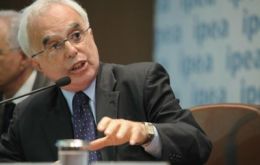
Mercosur high representative Samuel Pinheiro Guimaraes resigned because of “political reasons”, following the presentation of a report warning on the future of the regional block in the framework of the international crisis.
-
Saturday, June 30th 2012 - 05:39 UTC
Mercosur doubles list of goods that can have tariffs raised unilaterally 35% by each member

Mercosur rejected an Argentine proposal to raise imports tariffs on all goods from outer zone to protect local industries, but accepted Brazil’s initiative to raise tariffs unilaterally on 200 goods, up from 100 agreed last December.
-
Saturday, June 30th 2012 - 05:19 UTC
Brazil farmers rush to cash soy exports on high prices and favourable exchange rate
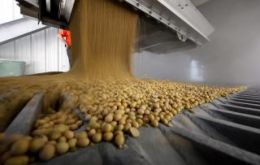
Brazil could soon run out of soybeans to export this year after farmers’ frontloaded their shipments more than normal to cash in on high international prices and a favourable exchange rate.
